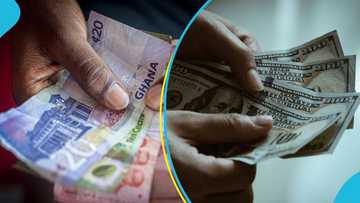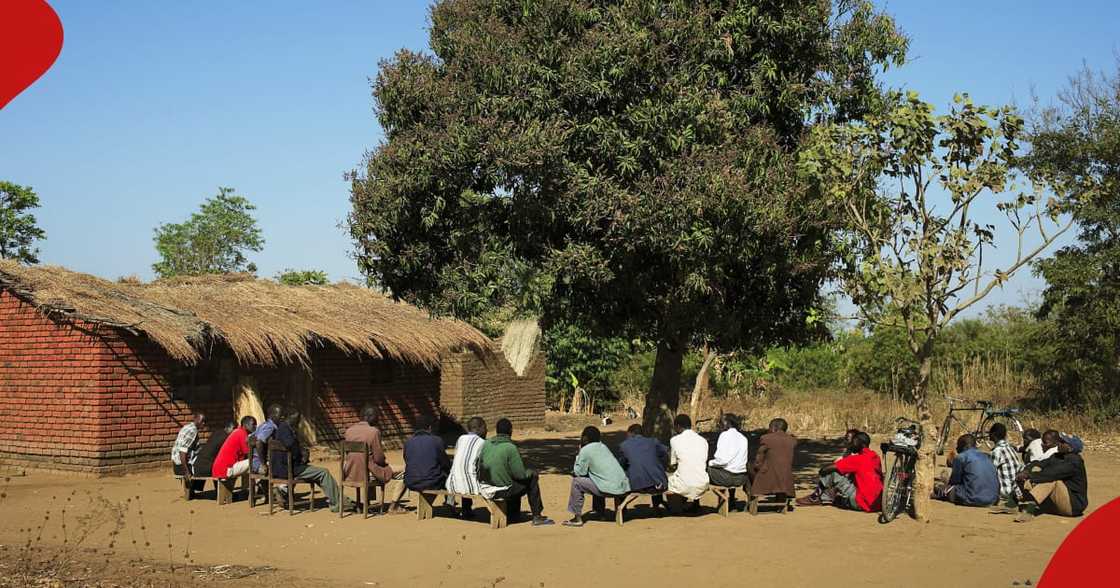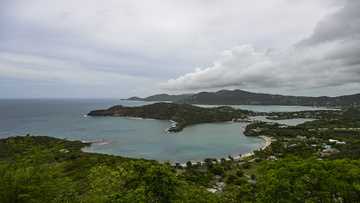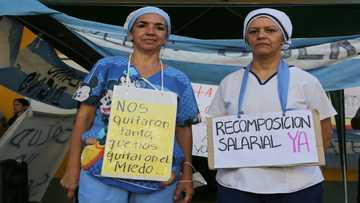List of Poorest Countries In Africa In 2024, South Sudan Tops
- The World Bank noted over 198 million could have fallen into poverty between the period when COVID-19 started and the end of 2022
- South Sudan in East Africa is the poorest country worldwide, with a GDP-PPP per capita of $455 (KSh 60,400)
- Burundi is another East African nation that is ranked among the poorest globally, with an estimated GDP-PPP per capita of KSh 121,599
TUKO.co.ke journalist Japhet Ruto brings over eight years of experience in financial, business, and technology reporting, offering deep insights into Kenyan and global economic trends.
Africa's poorest countries have been hit by civil wars, and their situations were worsened by the Russian invasion of Ukraine and the COVID-19 pandemic.

Source: Getty Images
Gross Domestic Product (GDP) per capita is used as the standard for measuring poverty, but purchasing power parity (PPP), accounting for variations in living expenses and inflation rates, is more accurately used to determine a person's purchasing power in any given country.

Read also
Federation of Traders gives government two weeks to reverse deprecation of the cedi by over 30 Percent
The percentage of people living in extreme poverty worldwide, or less than $1.90 (KSh 252) per day, had dropped from more than 35% in 1990 to less than 10% before the COVID-19 pandemic.
The World Bank estimated that an additional 198 million people were likely to have fallen into the extremely poor category between the onset of the pandemic and the end of 2022, when the International Poverty Line (IPL) was revised to $2.15 (KSh 285.41) due to the rising cost of living.
Ghana missing from the top 20
However, Ghana was not among the top twenty poorest African countries; it ranked 53rd.
Which are the poorest African countries?
1. South Sudan
Global Finance says South Sudan is the poorest country in Africa and the world. Its GDP-PPP per capita stands at $455 (KSh 60,400).
Despite abundant oil reserves, the country that gained independence from Sudan in 2011 has faced violence and stifling growth.
An estimated 60% of South Sudan's population (over 9 million people) need humanitarian assistance.

Source: UGC
2. Burundi
Burundi is another East African nation that is ranked among the poorest globally.
As of May 6, its GDP-PPP per capita stood at $916 (KSh 121,599).
Over 80% of the landlocked country's population relies on subsistence agriculture, but food insecurity is twice as high as the average for Sub-Saharan African countries.
3. Central African Republic
The Central African Republic has a highly impoverished population despite being rich in minerals such as gold, oil, uranium, and diamonds.
It has remained among the world's poorest nations for the last 10 years, with large sections of the country being controlled by anti-government militias.
The nation's GDP-PPP per capita is estimated at $1,123 (KSh 149,078.25).
4. Democratic Republic of the Congo (DRC)
The DRC is another East African country with large resources and minerals, but it is ranked among the poorest countries globally.
An estimated 65% of DRC's population lives on less than KSh 285 daily, and its GDP-PPP per capita is $1,552 (KSh 206,028).
According to the World Bank, the DRC could be among the wealthiest countries in Africa and drive the continent's economic growth.
5. Mozambique
The former Portuguese colony, with a GDP-PPP per capita of $1,649 (KSh 219,317), is strategically positioned along the southeast African coast and is rich in resources.
During the decade, it has consistently reported average GDP growth rates above 7%.
However, it remains one of the world's poorest nations, with harsh weather and unstable political systems among the main challenges.
6. Niger
Since the Sahara Desert covers 80% of its territory, the landlocked West African country faces a threat of desertification
Its population is increasing quickly and depends on small-scale agriculture. Disease and death rates are high, as is food insecurity.
Niger's GDP-PPP per capita is $1,675 (KSh 222,775).
7. Malawi
Malawi's economy is still susceptible to weather-related shocks due to its reliance on rain-fed agriculture.
The rate of food insecurity in Malawi's rural areas is high. The country's GDP-PPP per capita is $1,712 (KSh 227,696).
8. Liberia
The oldest African country has been one of the world's poorest nations for a long time.
When George Weah, a former football player, was elected president in 2018, expectations were high.
However, his years in power were marked by high unemployment, inflation, and slow economic growth. Former vice president Joseph Boakai beat him in the 2023 General Election.
9. Madagascar
Madagascar has faced political instability since it gained independence from France in 1960.
The country's poverty rate stands at 75%, making it one of the world's poorest nations.
Its GDP-PPP per capita is estimated at $1,979 (KSh 263,207).
Which are the richest African countries?
In related news, the Africa Wealth Report published by Henley & Partners and New World Wealth ranked South Africa as the wealthiest country on the continent.
South Africa was followed by Egypt, Nigeria, Kenya, and Morocco, with the top five accounting for 90% of Africa's billionaires.
The report noted Kenya's dollar millionaires with a net worth of at least KSh 130.8 million dropped from 8,500 in 2021 to 7,700 in 2022.
Source: TUKO.co.ke

Berlinda Entsie (Copy Editor) Berlinda Entsie is a Copy Editor at YEN.com.gh. She has worked as a proofreader and editor since 2016. Berlinda has over 5 years' experience editing and writing for leading publications in Ghana. She previously worked with Graphic Communications Group LTD, Business Insider SSA and Pulse.com.gh. She obtained a B.A in English Studies from the Methodist University College in 2016 and a Diploma in Broadcast Journalism from the GH Media School in 2019. Reach out to her via berlinda.entsie@yen.com.gh

Jessie Ola-Morris (Human-Interest Editor) Jessie Ola-Morris is a Human Interest editor at YEN.com.gh. She has over three years of experience in journalism. She graduated from the Ghana Institute of Journalism in 2022 with a Bachelor's degree in Communication Studies. Her journalism career started with myjoyonline.com, a subsidiary of The Multimedia Group Limited, where she worked as a writer. Jessie also previously served as a multimedia journalist for The Independent Ghana. In 2024, Jessie completed Google News Initiative News Lab courses in Advanced Digital Reporting and Fighting Misinformation. Email: jessie.ola-morris@yen.com.gh




